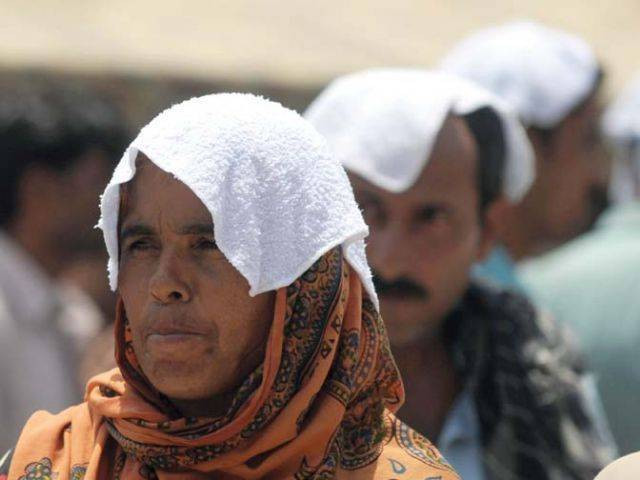AKAH: Creating safe and sustainable habitats
Improvement of human habitats has been a key concern for the Aga Khan Development Network (AKDN)

Study makes startling revelations about impact of climate change on South Asia by 2100. PHOTO: AFP
The improvement of human habitats has been a key concern for the Aga Khan Development Network (AKDN) and its institutional predecessors for over 100 years.
Central to that concern has been the quality and safety of housing. Several agencies therefore work to address different aspects of the habitat, from helping communities mitigate the risk of natural disasters to the creation of filtration systems that ensure safe drinking water.
Pakistan needs access to global funds to cope with climate change
For over two decades, the Aga Khan Agency for Habitat (AKAH), an AKDN agency, has been the pioneer of humanitarian initiatives, addressing the increasing threat posed by natural disasters and climate change across Pakistan, with a particular focus on communities living in disaster-prone regions.
Over the years, AKAH has designed disaster risk reduction and climate change adaption plans, and formed community-led organisations in over 750 rural and urban settlements, to enable residents of these high-risk areas to cope with disasters in terms of preparedness and response at grassroots level.
His Highness Prince Karim Aga Khan has emphasised the role of AKDN in addressing the “special needs of rural and urban planning in mountain habitats, the development of energy and water sanitation infrastructure and resources, seismic-resistant construction, as well as training and capacity building for disaster preparedness, particularly at the community level”.
Following the mandate given by Prince Karim Aga Khan, AKAH focuses on integrated rural and urban planning, centred on the needs of the residents. In the far-flung areas of northern Pakistan, areas with varied topography and climatic contrasts, AKAH has developed local capacity for constructing safe houses, designed with traditional housing aesthetics and modern building techniques including inclusion of insulation and seismic resistance.
A local mason explained, “Previously there was no understanding of building codes and engineering standards; people built their houses as they liked. Slowly but surely this perception is being changed through AKAH and people are understanding the importance of proper architecture and engineering standards whilst constructing their houses.”
Most households in these cold areas use fuel wood to keep their houses warm during winters, which has both economic and health implications. AKAH has introduced over 40 energy-efficient products, some of which, such as the fuel-efficient stove, have helped conserve fuel wood by as much as 40%. This has contributed significantly towards reducing deforestation in these areas – and lowering medical expenditure on treating respiratory infections and eye-soreness by 50%.
AKAH has also provided safe drinking water as per WHO standards, improved sanitation, and delivered comprehensive trainings on improved health and hygiene to over half a million people in urban towns as well as far removed, inaccessible rural settlements.
These initiatives have helped empower women and children, who were disproportionately affected due to lack of access to water and sanitation services. A homemaker from one of the beneficiary regions expressed her excitement at receiving safe drinking water at her doorstep, “We have been saved from the curse of diarrheal diseases, and I no longer have to spend time and energy hauling water uphill from the well.”
Pakistan among countries most affected by climate change
AKAH has also installed Early Warning Systems (EWS) in various villages to warn against rising river levels. Simultaneously, a few people from each of those villages are trained to act as a Community Emergency Response Team (CERT). In the event of a natural disaster, CERT members take charge and guide residents to gather in a nearby building designed to serve as a ‘safe haven’ for them.
This initiative has helped prevent loss of life and property due to natural disasters in many parts of Gilgit-Baltistan, an area where lack of radar systems and knowledge on the same, previously resulted in devastating catastrophes. AKAH therefore recognised the linkage between local knowledge and disaster preparedness, which enabled it to build resilient communities.
“Our homes and valleys are gifted by nature, but recently the disasters have affected us. We are so thankful to AKAH’s team for training us on how to prepare against disaster threats and making our lives safer”, said a resident of Booni in Chitral.



1724319076-0/Untitled-design-(5)1724319076-0-208x130.webp)















COMMENTS
Comments are moderated and generally will be posted if they are on-topic and not abusive.
For more information, please see our Comments FAQ